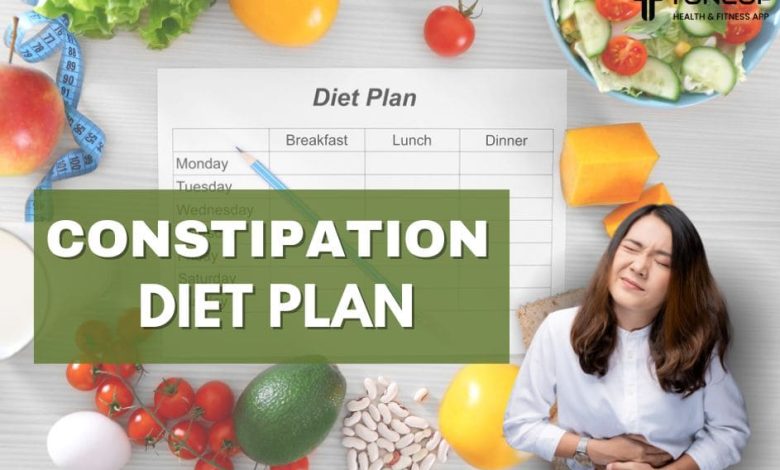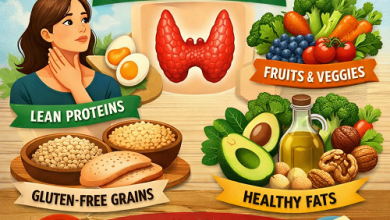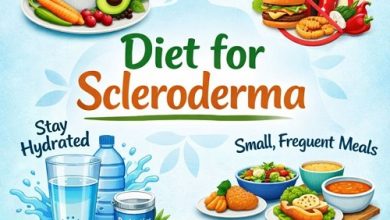Your Constipation Diet Plan: The Foods and Drinks That Actually Work

Constipation is more common than most people admit. Whether it shows up after a stressful week, a change in routine, or a poor diet, it can leave you feeling bloated, uncomfortable, and frustrated. The good news? In many cases, constipation improves significantly with the right foods and drinks. A well-balanced diet can soften stools, stimulate bowel movements, reduce bloating, and restore digestive comfort naturally.
The ultimate constipation diet plan, including the foods and drinks that actually work, why they work, and how to build them into your daily routine. Whether you deal with occasional constipation or struggle with sluggish digestion regularly, this plan gives you the clarity you need to feel better—naturally and sustainably.
Understanding Constipation: A Quick Overview
Before you begin changing your diet, it helps to understand what constipation actually is. Doctors typically describe constipation as:
- Fewer than three bowel movements per week
- Hard, dry, or lumpy stools
- Difficulty or straining during bowel movements
- A feeling of incomplete evacuation
Most constipation results from lifestyle habits—low fibre intake, inadequate hydration, sedentary behaviour, or stress. In some cases, medications or underlying health conditions play a role. But for the vast majority of people, improving your diet is the most effective starting point.
1. The Role of Diet in Relieving Constipation
Food is fuel for your digestive system. The nutrients, fibres, and natural compounds in what you eat influence:
- How quickly food moves through the gut
- Stool size and softness
- Gut microbiome balance
- Water absorption in the intestines
Certain foods can slow gut movement, while others support regularity. This diet plan focuses on the latter—foods and drinks scientifically linked to improved bowel function.
2. High-Fibre Foods: Your First Line of Defence
When it comes to constipation, fibre is king. Fibre adds bulk to stools, increases softness, and helps them pass more comfortably. Adults should aim for 25–35 grams of fibre per day, yet most people barely reach half of that.
Below are the fibre-rich options that work best.
A. Fruits That Beat Constipation
1. Prunes
Prunes are arguably the most famous natural laxative. They contain:
- Soluble fibre
- Insoluble fibre
- Sorbitol (a natural sugar with mild laxative effects)
Just 5–6 prunes a day can support a smoother bowel movement.
2. Pears
Pears are rich in fibre and contain fructose plus sorbitol, both known to stimulate gut movement. Eating pears with the skin provides the maximum benefit.
3. Apples
Apples contain pectin, a soluble fibre that turns water into a gel-like substance, softening stools and supporting healthy bacteria.
4. Berries
Raspberries, blackberries, and blueberries add fibre without excess sugar. They also offer antioxidants that soothe gut inflammation.
B. Vegetables That Keep Things Moving
1. Leafy Greens
Spinach, kale, and collard greens add magnesium—a mineral that helps draw water into the intestines.
2. Broccoli
High in fibre and sulphur compounds that improve digestion, broccoli supports healthy bacteria in the gut.
3. Carrots
Carrots help bulk up stools and are gentle on the stomach, making them ideal for daily eating.
C. Whole Grains for Bulk and Balance
Carbohydrates aren’t the enemy—refined carbs are. Whole grains deliver natural fibre that aids regularity.
Top constipation-friendly whole grains:
- Oats
- Quinoa
- Brown rice
- Barley
- Whole wheat bread
- Bran flakes
Tip: Add a spoonful of wheat bran to your morning porridge for an extra fibre boost.
3. Hydrating Foods and Drinks: Why Water Matters Most
Fibre alone won’t solve constipation unless you hydrate properly. Water softens stools and helps fibre do its job.
Daily hydration goal:
2–3 litres of water for most adults (more in hot climates or active lifestyles).
But water isn’t the only option.
A. Warm Water
Drinking warm water, especially in the morning, stimulates intestinal contractions and helps kick-start bowel movement.
B. Herbal Tea for Digestion
1. Ginger Tea
Ginger relaxes gastrointestinal muscles and enhances digestion.
2. Peppermint Tea
Peppermint soothes the gut and reduces bloating.
3. Senna Tea
Senna is a powerful herbal laxative. Use it only occasionally, not daily.
C. Coconut Water
Rich in electrolytes—especially magnesium—coconut water hydrates the gut and prevents hard stools.
D. Prune Juice
Prune juice contains sorbitol and acts faster than whole prunes. Drinking a small glass before bed works for many people.
4. Healthy Fats: Lubrication for Your Digestive System
Healthy fats help lubricate the intestines, making stool passage smoother.
Best constipation-friendly fats:
- Extra virgin olive oil
- Avocado
- Chia seeds
- Flaxseeds
- Nuts (almonds, walnuts, pistachios)
Quick remedy:
Take 1 tablespoon of olive oil on an empty stomach for mild constipation relief.
5. Probiotics: Restoring Gut Balance
Your gut depends on healthy bacteria to digest food efficiently. When gut flora becomes unbalanced—due to antibiotics, stress, or poor diet—constipation often follows.
Foods naturally rich in probiotics:
- Yoghurt (choose unsweetened, live cultures)
- Kefir
- Sauerkraut
- Kimchi
- Miso
- Fermented pickles
Why probiotics help:
- They enhance stool consistency
- Reduce bloating
- Improve intestinal movement
- Support long-term gut health
Consider combining probiotics with high-fibre foods to multiply the benefits.
6. Drinks That Work Quickly for Constipation Relief
Some drinks provide fast relief without the harsh effects of chemical laxatives.
A. Lemon Water
A warm cup of lemon water stimulates the colon and encourages healthy bile flow.
B. Coffee
Caffeine naturally stimulates intestinal contractions. However, avoid overuse because dehydration can worsen constipation.
C. Apple Cider Vinegar
A tablespoon of ACV in warm water before meals can improve digestion and support bowel movement—thanks to natural acids and enzymes.
D. Psyllium Husk Drink
Psyllium is one of the most effective forms of soluble fibre. When mixed with water, it expands and adds bulk to stools.
Best method:
Take 1 teaspoon mixed in a full glass of water, followed by another glass of plain water.
7. Foods to Avoid When You’re Constipated
Some foods slow digestion and make constipation worse.
A. Low-Fibre Foods
- White bread
- White rice
- Cakes and pastries
- Processed snacks
B. Red Meat
Red meat digests slowly and often contributes to sluggish bowel movements.
C. Dairy for Some People
For lactose-sensitive individuals, dairy can cause constipation, bloating, and gas.
D. Fried and Fast Foods
High fat + low fibre = slow digestion.
E. Excess Salt
Salt causes dehydration, resulting in harder stools.
8. The Perfect One-Day Constipation Diet Plan
Here is a full sample day to help you structure your meals:
Breakfast
- Porridge made with oats, chia seeds, and flaxseeds
- A handful of fresh berries
- One cup of warm lemon water
- One probiotic yoghurt
Mid-Morning Snack
- An apple or a pear (with skin)
- A glass of water
Lunch
- Brown rice or quinoa bowl
- Steamed broccoli, carrots, and spinach
- Grilled chicken or chickpeas
- 1 tablespoon olive oil drizzled over the top
Afternoon Snack
- A small handful of nuts
- A cup of peppermint or ginger tea
Dinner
- Vegetable lentil soup or bean stew
- Whole-grain bread slice
- Side salad with olive oil
Before Bed
- 1 glass of warm water
- 3–5 prunes OR a small glass of prune juice
9. Lifestyle Tips to Enhance Your Constipation Diet Plan
Diet plays a major role, but lifestyle choices are equally important.
A. Exercise Daily
Even light movement, like a 20-minute walk, stimulates bowel activity.
B. Don’t Ignore the Urge
Delaying bowel movements leads to harder stools.
C. Eat Meals at Regular Times
Routine supports the natural digestive rhythm.
D. Reduce Stress
Stress disrupts the gut–brain connection and slows digestion.
E. Improve Toilet Habits
Raising your feet on a small stool while sitting mimics a natural squat position and makes passing stool easier.
10. When to See a Doctor
Seek medical attention if you experience:
- Constipation lasting more than 10–14 days
- Blood in stool
- Severe abdominal pain
- Sudden, unexplained changes in bowel habits
- Weight loss
Chronic constipation sometimes signals underlying issues such as thyroid disorders, IBS, or medication side effects.
Final Thoughts
Constipation is uncomfortable, but it’s usually reversible with the right diet and hydration habits. Increasing fibre intake, drinking enough fluids, choosing gut-friendly foods, and avoiding digestion-slowing items can make a dramatic difference. By following this constipation diet plan, you support your digestive system naturally, encourage healthier bowel movements, and improve overall well-being.
A well-balanced diet doesn’t just treat constipation—it prevents it. Start making these changes today, and your gut will thank you.




